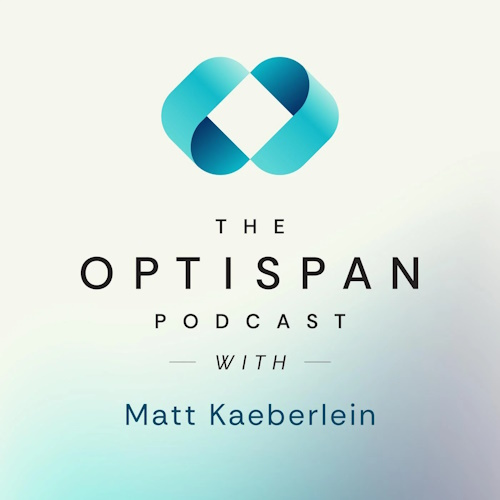Scientists Debate How to Live Longer & Longevity Drugs
Matt and Charles discussed geroscience, sirtuins, and NAD+ boosters
Matt and Charles Brenner, Chair of Diabetes and Cancer Metabolism at City of Hope, have had public disagreements on social media. To explore these differences, Charles was invited on the Optispan Podcast to discuss geroscience topics such as sirtuins in longevity, epigenetic age tests, and NAD+ boosters, which are among his areas of expertise. Currently, he is the Chief Scientific Advisor at ChromaDex, a biotechnology company leveraging his nicotinamide riboside (NR) intellectual property, and a cofounder of biotechnology companies Alphina and Juvenis. Before his current role, Charles held faculty positions at Thomas Jefferson University, Dartmouth College, and the University of Iowa, where he was the Roy J. Carver Head of Biochemistry for 11 years. He conducted postdoctoral research at Brandeis University, holds a PhD from Stanford, and a B.A. from Wesleyan University.
Key Points
Matt and Charles Brenner, Chair of Diabetes and Cancer Metabolism at City of Hope, have debated publicly on social media. Charles joined the Optispan Podcast to discuss geroscience topics like sirtuins and NAD+ boosters, drawing on his extensive academic and industry experience, including his role as Chief Scientific Advisor at ChromaDex.
- Geroscience Hypothesis: The podcast explores the concept of geroscience, which suggests that targeting the biological mechanisms of ageing could influence the onset of age-related diseases. The hosts discuss whether this approach is actionable in humans, given its success in model organisms like mice.
- Longevity Genes: The conversation delves into the role of specific genes in longevity, particularly in mice, where disrupting certain growth hormone pathways can extend lifespan. However, the translation of these findings to humans is debated, considering the complexity and potential downsides.
- Growth Hormone and ageing: There’s a discussion on whether altering growth hormone signaling in adulthood can slow ageing. The hosts touch on the potential benefits and risks, including the implications for conditions like sarcopenia and cancer.
- Dogs as Models for ageing Research: Dogs are highlighted as valuable models for ageing research due to their genetic diversity, shared environment with humans, and the availability of interventions. The conversation emphasizes the importance of studying dogs to gain insights into human ageing.
- Evolutionary Perspectives on ageing: The hosts discuss whether evolution has shaped specific mechanisms to control the rate of ageing, with the consensus being that ageing may be more about reproductive success than direct evolutionary pressure.
- Laron Syndrome and Human Longevity: The podcast examines Laron syndrome, a condition that results in short stature due to growth hormone receptor mutations. While these individuals have low cancer rates, they face significant social and psychological challenges, raising questions about the trade-offs in modulating growth hormone pathways.
- Health Interventions for Longevity: Practical health interventions like walking your dog are recommended as effective ways to promote longevity. The hosts highlight the importance of physical activity and the potential benefits of spending time outdoors with pets.
- Cautious Optimism in Longevity Research: There’s a cautious approach to the promise of longevity interventions, with the hosts advocating for a careful consideration of the evidence and avoiding the hype that often surrounds ageing research. They stress the need for more research before making broad claims about anti-ageing treatments.
Visit website: https://www.youtube.com/watch?v=EebH_taOlAA
See alsoDetails last updated 14-Aug-2024
Mentioned in this Resource
Niagen Bioscience
An integrated global nutraceutical company devoted to improving the way people age




